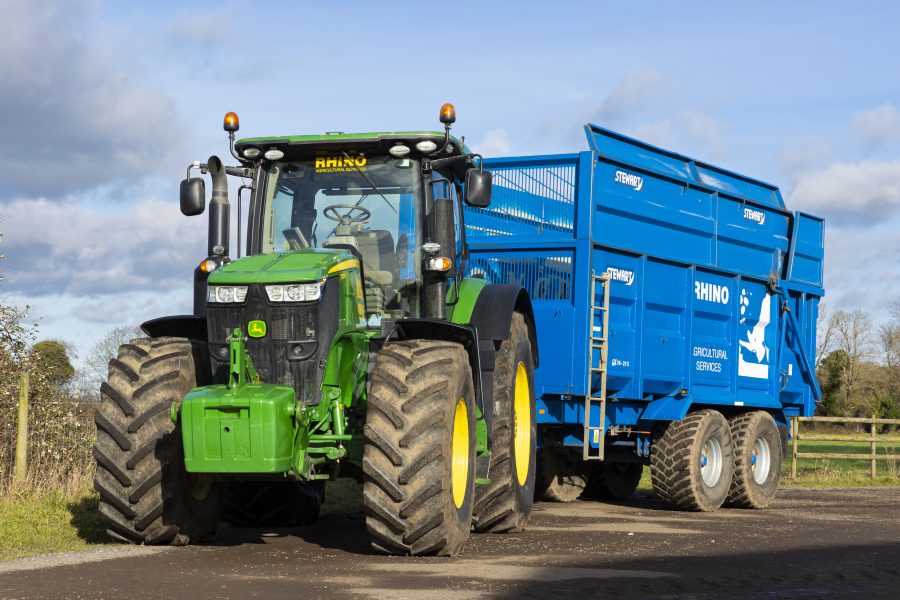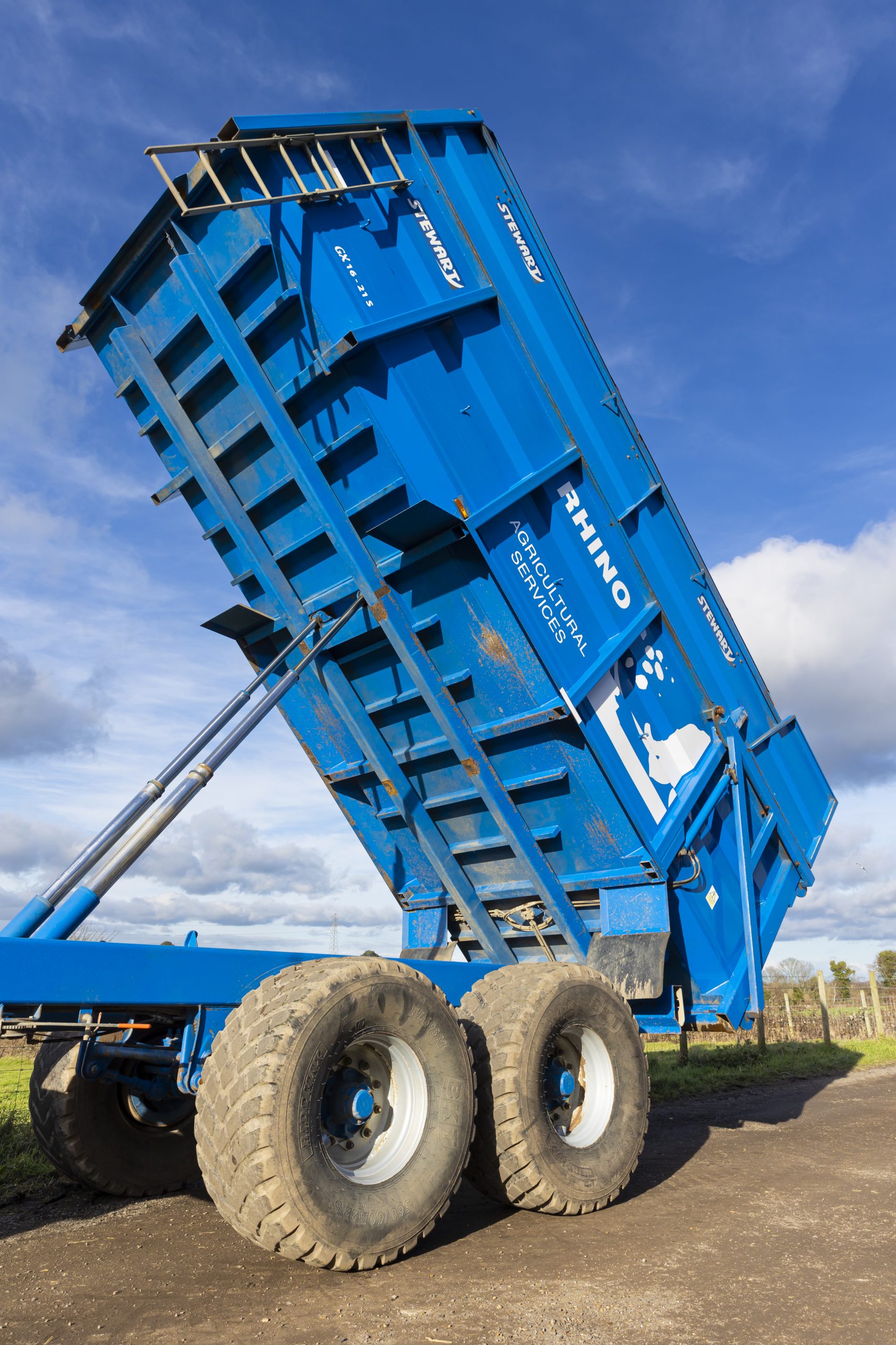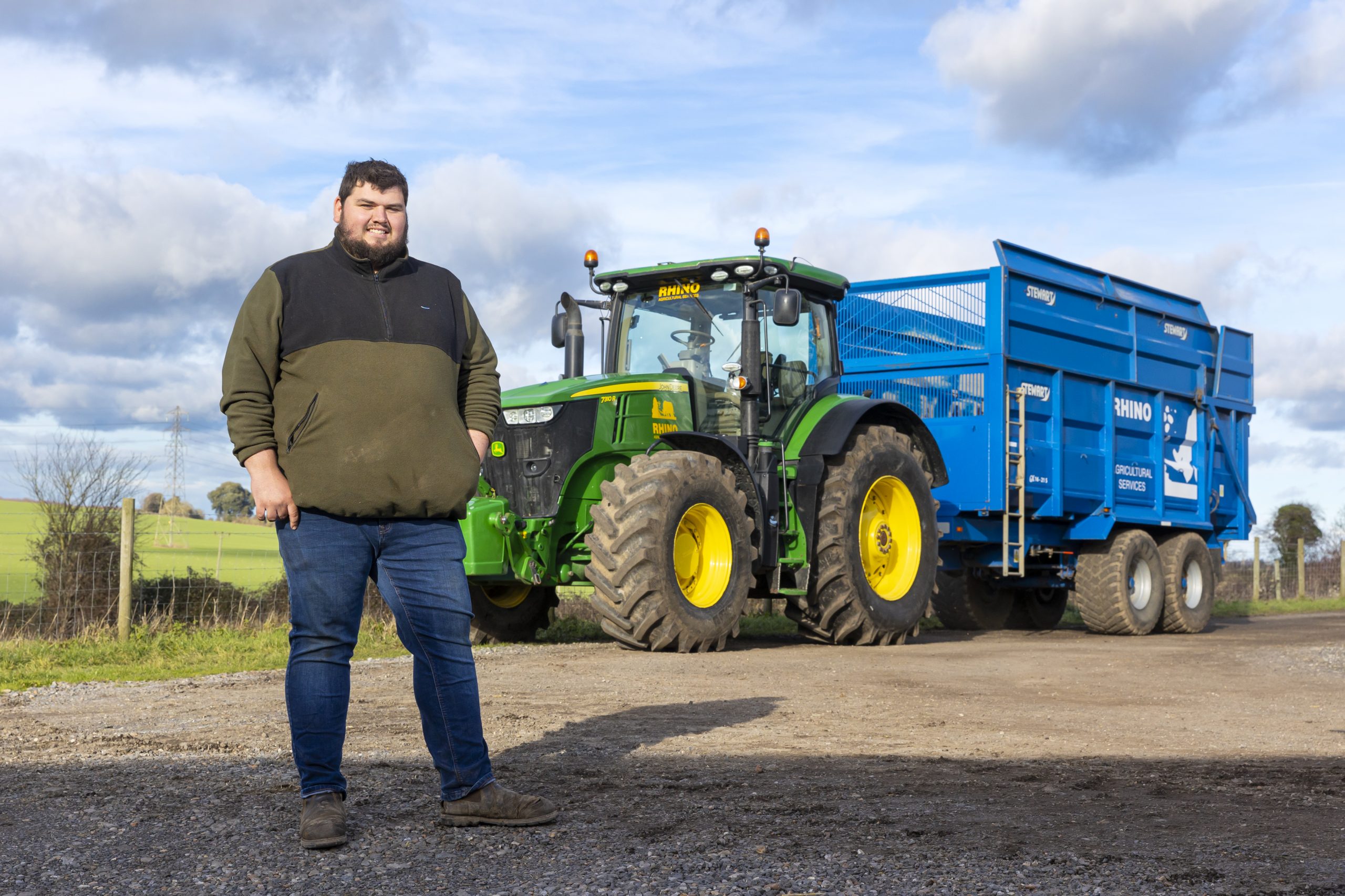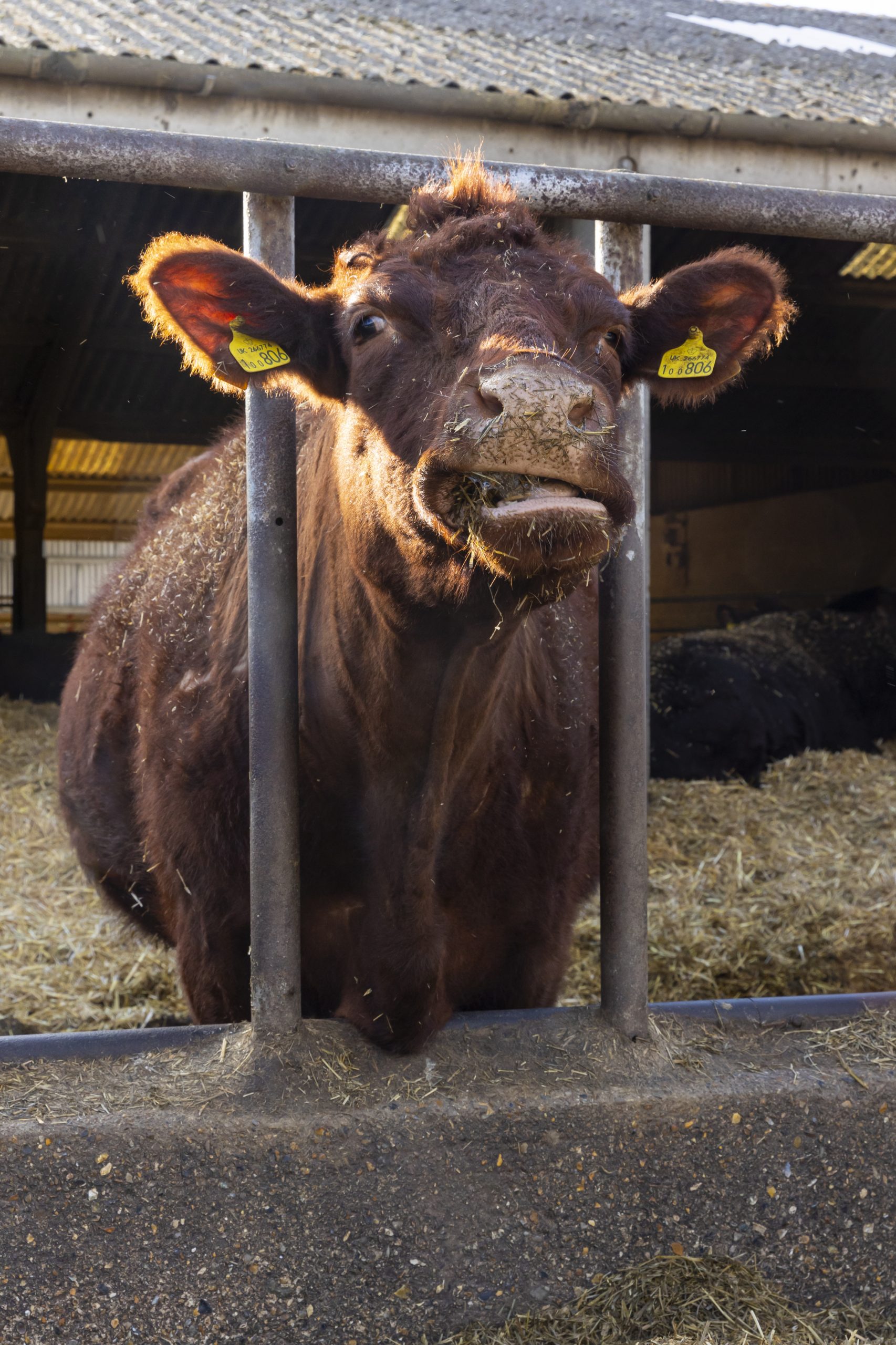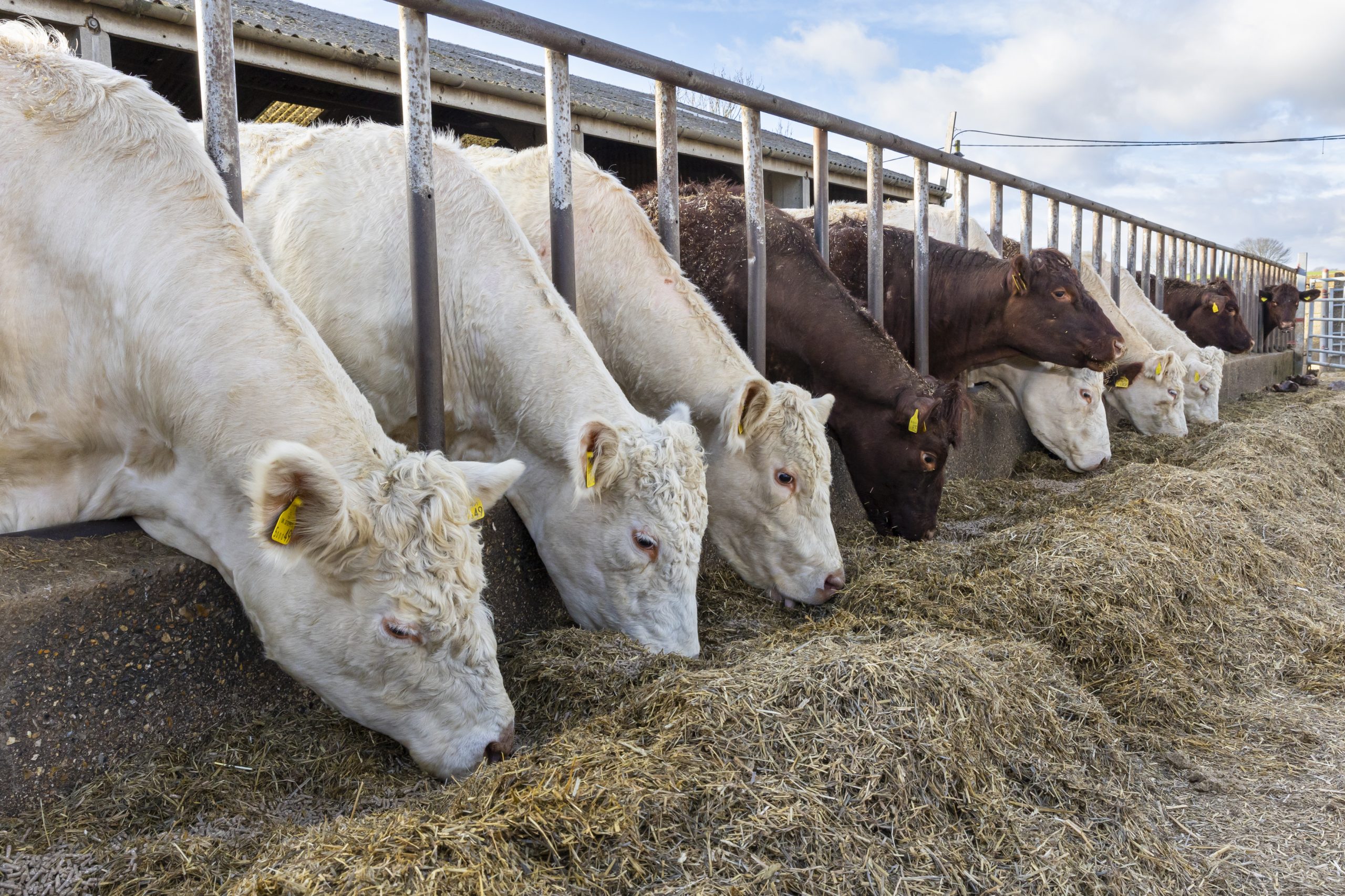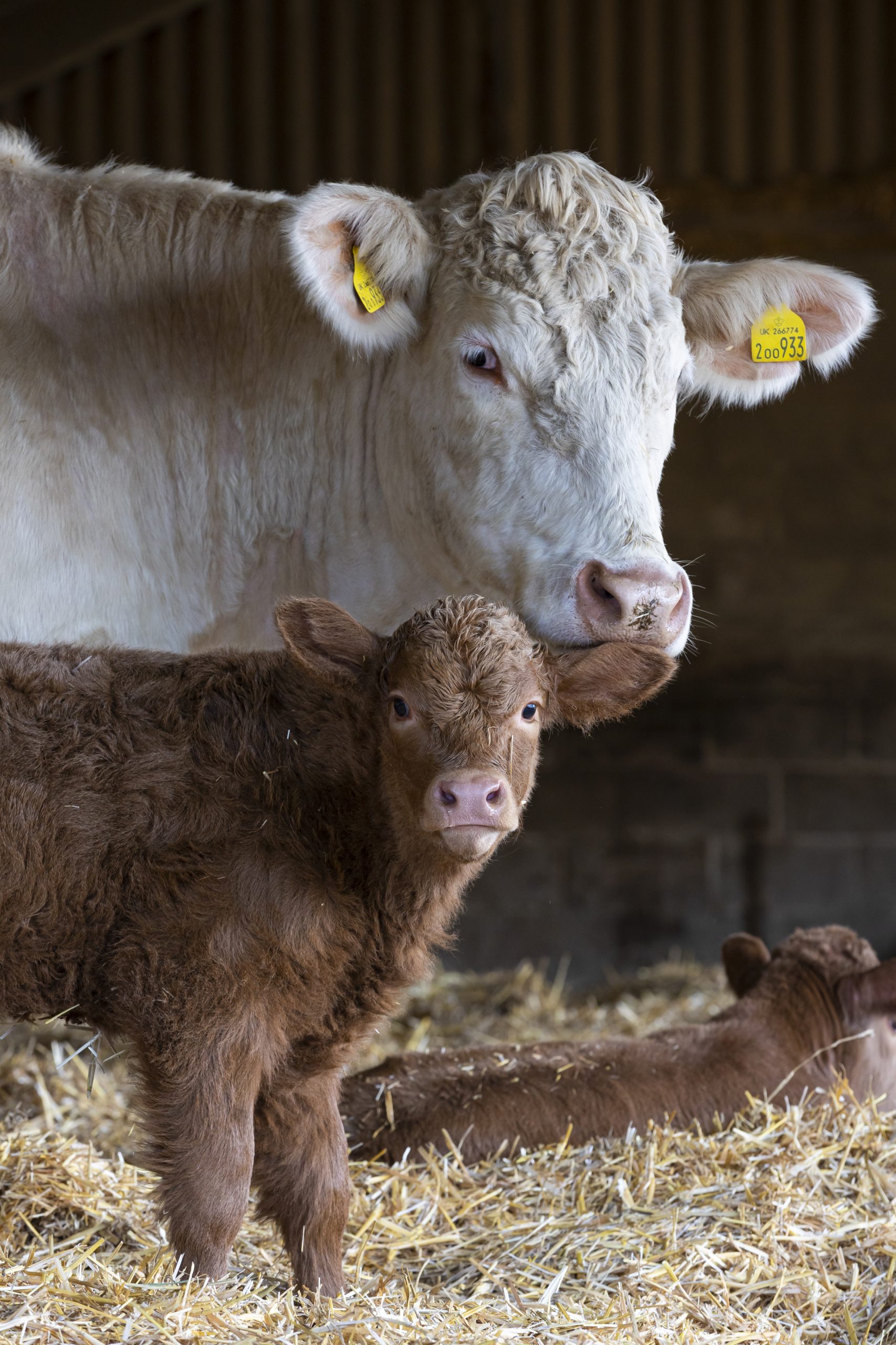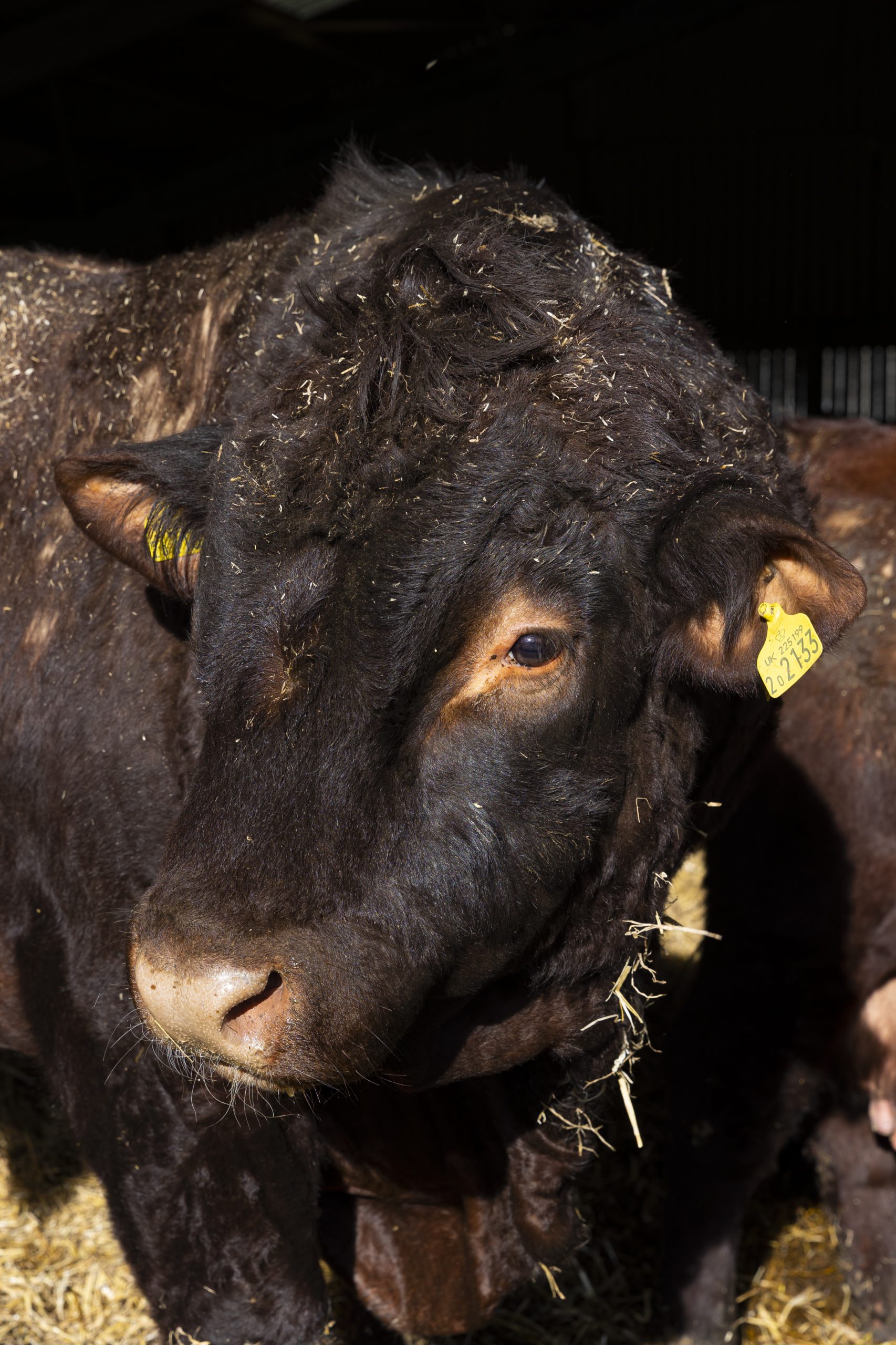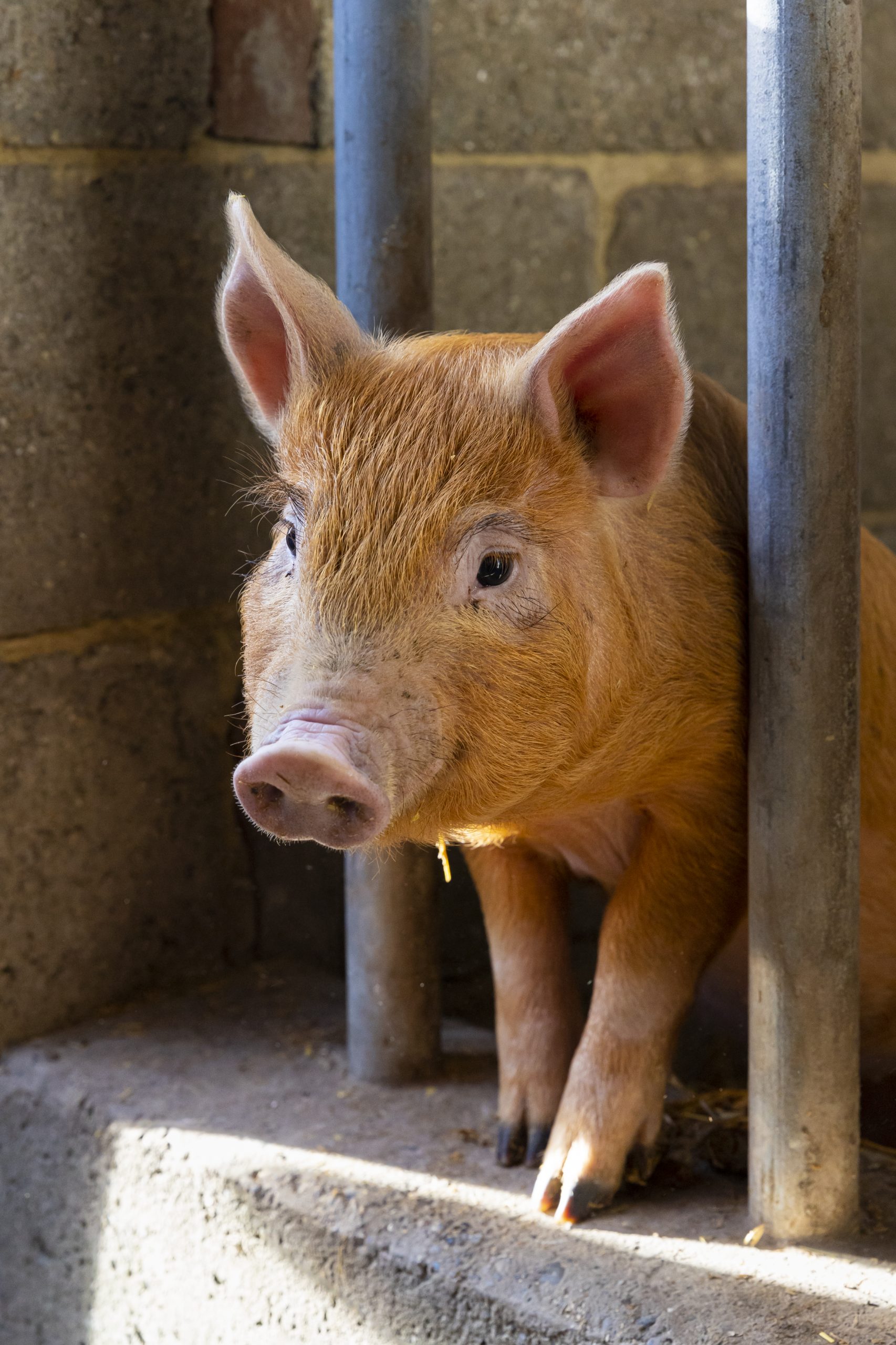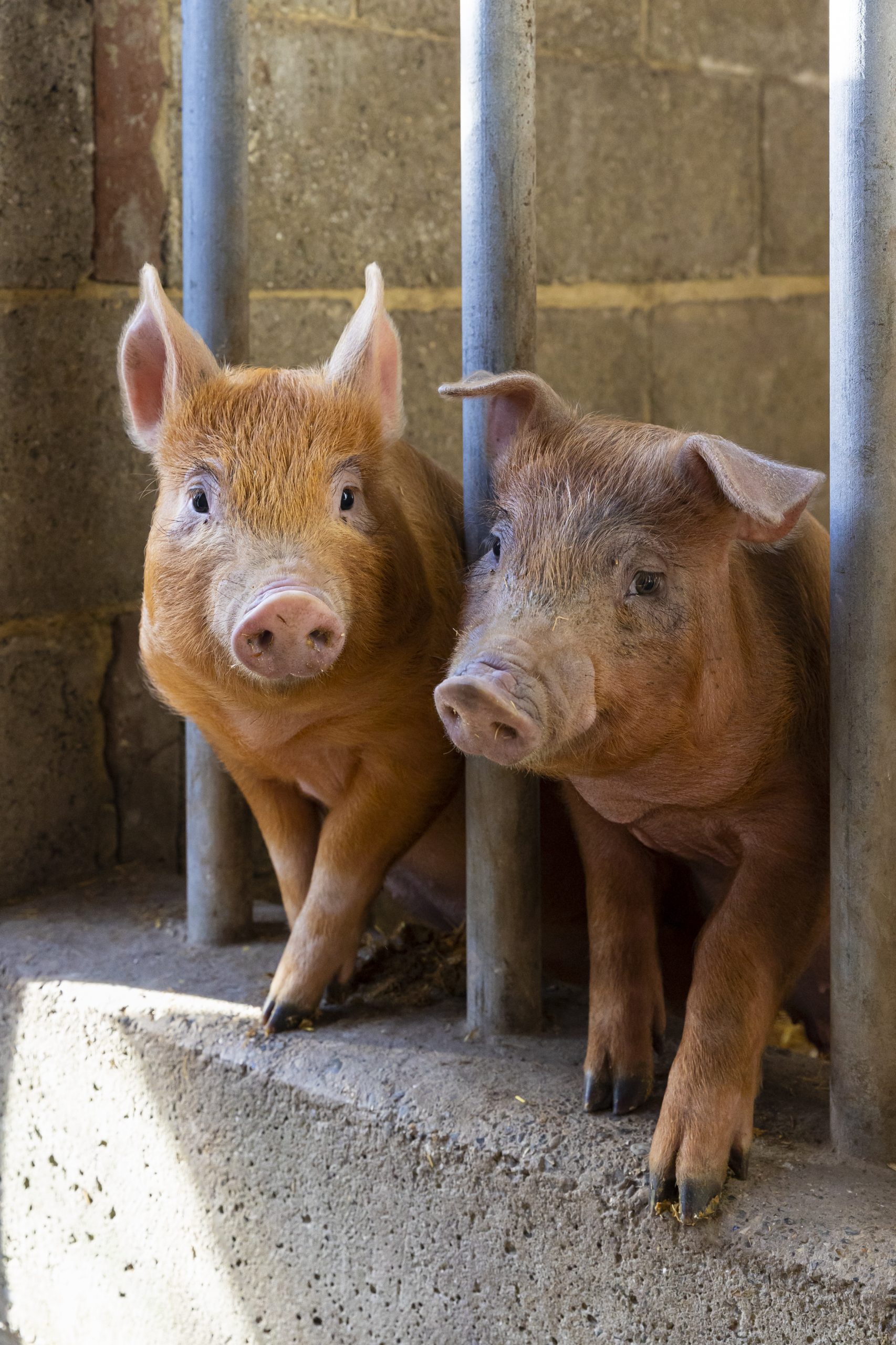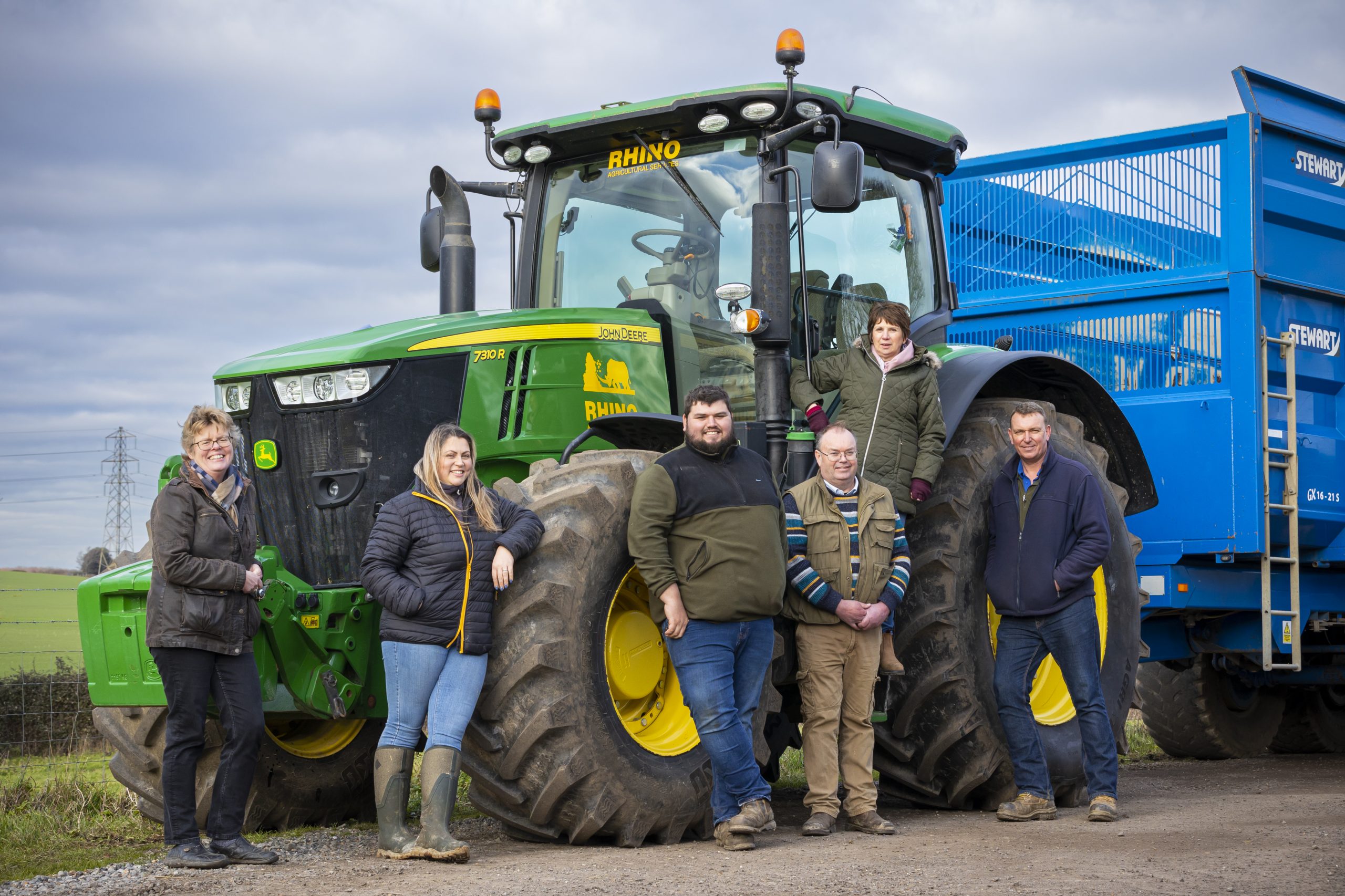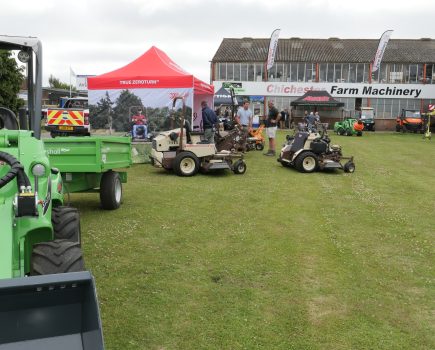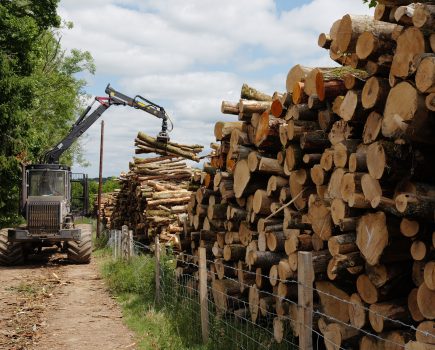It takes courage to invest more than the price of your home in setting yourself up in business, but Neil Morgan’s decision to do just that 30 years ago has paid dividends.
Now at the helm of Rhino Agricultural Services, with an impressive fleet of machinery at his disposal and an equally impressive client list that ranges from local farmers to the National Trust, Neil started up the business with one bulldozer and a promise of work.
That promise came from his boss at the time and was enough to prompt Neil and his wife Kim to set up a company that now employs 12 people and has become a well-respected plant hire business serving farming, conservation and archaeology customers across Kent and beyond.
Neil met Kim at Rycotewood College in Oxfordshire, where he qualified as an agricultural engineer, and the couple married soon after. He worked in agricultural engineering for a while, but when the recession hit in the late eighties he began working as a self-employed driver and plant operator for the Brett Group in Canterbury.
The site manager at the time, Terry Gilham, then told Neil that he was looking for someone who could provide and operate a bulldozer. The couple thought it through and went ahead, although Neil admitted: “It was a lot dearer than the bungalow we had just bought to live in.”
It is a measure of the value of the opportunity he was given that Neil is still in contact with Terry, now retired, and Rhino Agricultural Services still works for Brett, although the majority of the company’s work is in agriculture and conservation rather than industrial or commercial projects.
As an aside, Neil revealed the origin of the ‘Rhino’ name and logo. “It comes from the 1989 Club Biscuit advert which shows a rhino trying to knock the chocolate off the biscuit,” he said. “It seemed like a good fit for a plant hire company at the time.” Thirty years on, the ad may be long forgotten, but it still seems like a good name.
Neil and his bulldozer continued to work for Brett after setting the company up in 1993 but as his reputation spread he found himself more and more in demand from local farmers and began buying more equipment, beginning with a dung spreader.
“I was from an agricultural family, so it was a natural move for me to begin working for farmers and it allowed me to combine my farming knowledge, my engineering background and my operating experience,” he said.
Neil’s grandfather and great-grandfather both farmed in the Preston area and his father David Morgan worked for Hickson Brothers at Sutton, near Dover. Not to be outdone, his mother Barbara worked on a farm at Elmstone, near Preston, where she drove crawlers.
In 2003 Rhino Agricultural Services picked up its first major contract, clearing and dredging for the River Stour Internal Drainage Board (IDB), one of a number of contracts the company still has 20 years later.
While it was Terry Gilham who gave Neil the opportunity he needed, he is keen to pay tribute to the support he has had from local farmers over the years, both from a business and personal perspective. They include arable farmer Richard Ledger, from Little Mongeham, who Neil said had provided “much kindness and support” over the years as well as being a valued client.
Inside the business, his right-hand man is former dairy farmer Darren Godden, who joined Rhino Agricultural Services as contracts manager in 2014.
The two men’s paths first crossed when Neil provided contract baling for Darren’s family farm at Elvington Lane in Hawkinge. In 2001 Darren was forced to sell the herd and move out of dairying. “Our grassland was landlocked by arable fields so we couldn’t expand and it was impossible to continue,” he recalled.
The spare sheds at Hawkinge were put to good use by Neil as a home for the cattle herd he had begun to build after initially buying them “as a hobby”.
He explained: “I used to help dad with the cows and I love working with them so in 2000 I bought my first cattle because I wanted them, not as a business venture.” Since then, the White Cliffs Herd of Charolais and Pedigree Lincoln Reds, now housed at St Margaret’s at Cliffe, has grown to around 200 head.
They are looked after by Neil and his daughter-in-law Jenny Morgan, while son Russell works in the business and has day-to-day responsibility for the agricultural contracting side. Jenny and Russell also keep pigs, while Neil and Kim’s daughter Hannah and husband Jim Harmer have a herd of pedigree Shorthorns.
To complete the family links with the business, Neil’s “big sister” Deborah Whitlock has been the company’s book keeper since day one and is another vital part of the operation.
Darren, meanwhile, worked in construction after leaving dairying, but by his own admission “always loved the animals more than the machines” and was keen to get back into more of a farming-based business.
“Being given the chance to work with Neil was a great opportunity for me to combine my experience of plant and machinery with my background in farming,” he said. “It was an opportunity I couldn’t turn down and I have really enjoyed being able to contribute to the growth of Rhino Agricultural Services.”
Both Darren and Neil were quick to pay tribute to the workforce that provides the day-to-day service to the company’s broad range of agricultural and conservation clients. Long-term operators such as Andy Harrison, Andy Chidwick, Mark Hilton and Gary Norton have a huge amount of knowledge and experience between them.
That experience is particularly important with the kind of work the company does for the likes of Wessex Archaeology, another long-standing client that has used Rhino Agricultural Services for the past 15 years or more. When the archaeologists want a layer of dirt removed from a dig site, that ‘scrape’ can be as little as a centimetre and takes skilled work.
As well as the archaeology and IDB work, the company provides dyke maintenance and other clearance services for the National Trust and for the Royal Society for the Protection of Birds (RSPB).
The company’s plant list is impressive. As well as a bulldozer it operates five excavators, from eight to 26 tonnes and including a 13m long reach machine, and has its own low-loader which is also hired out to other companies needing to move heavy machinery.
The long reach excavator, mounted on a pontoon that had to be assembled especially for the job, was used to raise a number of islands in a lake at the RSPB’s Dungeness reserve, where rising water levels had begun to flood nest sites.
Rhino Agricultural Services has also worked on other large scale wetland creation schemes for the RSPB, including a 300-acre site in the Lydden Valley, near Deal. For the National Trust, it uncovered First World War sound mirrors built into the side of the cliffs at St Margaret’s at Cliffe and is currently working on the Trust’s White Cliffs site, where it is helping to reveal Second World War cross-Channel gun emplacements.
On the agricultural side, the team provides a range of services including muck spreading, mowing, tedding, rowing, forage harvesting and drilling. It has also completed three large reservoir projects in the county.
Again, the plant and machinery list is impressive, based around six John Deere tractors and one Fendt, together with a Claas forage harvester, JCB loading shovel and JCB telehandler. Two maize drills, a seed drill, round and square balers, a plough and cultivation equipment, including a 10-metre rake, complete the picture.
As well as general farming work, Rhino Agricultural Services is kept busy by two local anaerobic digestion plants, providing everything from forage harvesting through to digestate spreading and carting. The machinery stable includes three Bunning 16-tonne Lowlanders and five Stewart trailers as well as three 30-feet bale trailers.
Looking back over the past 30 years, Neil stressed that the business had been built on the quality of the equipment, the experience of the team and a focus on reliability. “We are looking forward to carrying that on into the future,” he added.
- Russell Morgan
- Deborah Whitlock, Jenny Morgan, Russell Morgan, Neil Morgan, Kim Morgan and Darren Godden

